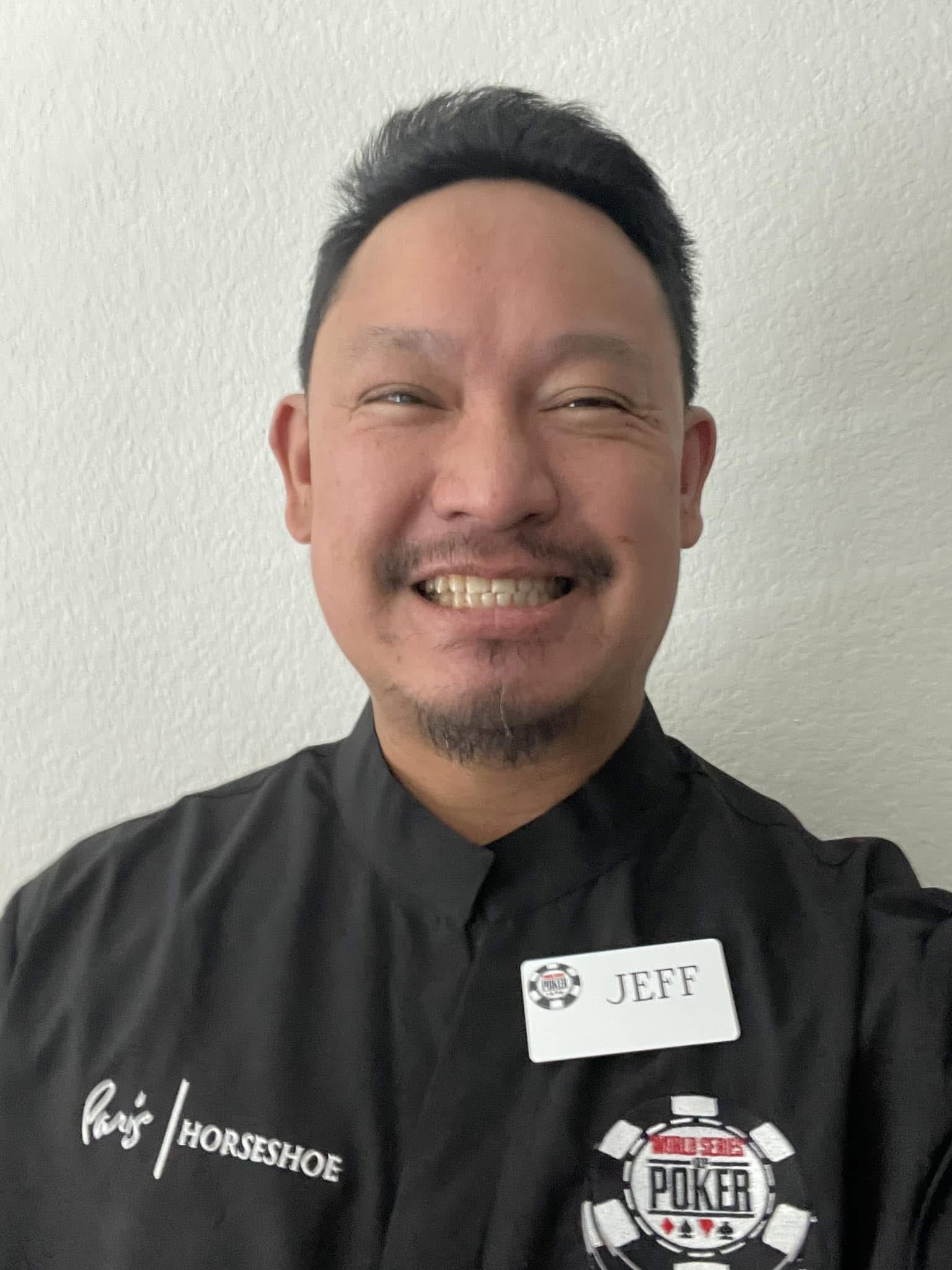When my wife & I were very early in our relationship, we took jobs in our mid-20s just to pay the bills. This was pre-Moneymaker, so I hadn’t gotten into poker seriously yet. She took a job at the local Home Depot, getting assigned to the garden department. While she didn’t have much experience in plants, she was eager to learn and dove into the job. Very quickly, the garden supervisor noticed her enthusiasm and assigned her more responsibilities, which she gladly accepted.
A few months into this job, she came home after work very frustrated. Over dinner, she shared how many of her peers didn’t seem interested in the work. They slacked off while on the clock, putting the onus on the more responsible staff (like herself). After she vented for a bit, I offered this: “Not everyone is in that job for the same reasons as you.” While I didn’t know many of her co-workers, I posited that some of them may be thinking:
no one wants to work there, so management isn’t likely to fire people,
the pay isn’t great, so why try hard?
this is a dead-end job, with little or no opportunities for upward mobility or a significant pay increase,
the work itself isn’t stimulating or personally fulfilling,
due to life choices or circumstances, they are unable to find better work,
because of family responsibilities, they need a job that offers some sort of insurance benefits and/or scheduling flexibility.
While my wife didn’t completely sympathize with these co-workers, she did acknowledge that not everyone is like her, still fresh on the job and wanting to prove herself to the powers-that-be.
Poker players are the same way. While outsiders think that all players have the ultimate goal of winning money, the reality is that most poker players have multiple motivations to the game, some of which conflict with actually winning money.
Players love the high of winning
In one of my side gigs, I deal poker tournaments to raise money for non-profits in the Bay Area. In any given month, I’ll deal 2-8 charity tournaments for different groups. They have become so popular, many groups do this yearly, so I’ve gotten to know many of the players and organizers over the years.
For the vast majority of the players, they know they are attending this event to donate money to the cause; many of them don’t even know how to play poker ahead of time (we offer a tutorial prior to the tournament start). But by the time the tournament ends, everyone has had a wonderful time, and we crown one winner with a commemorative t-shirt and some sort of donated prize.
The excitement of winning pots and maybe even an entire event keeps folks coming back to these charity poker tournaments. Compared to the skill level found in public cardroom and casinos, the charity events are populated by mostly casual players. Any given night, one of these amateurs can hoist the crown (or even a bracelet).
Players love the social aspect
When I first started playing in a local card room, I was surprised that most of the players knew each other (making me the “new guy.”) I was naive in my 20s and thought “all these people must be rich, playing poker all the time.” What I came to realize is that these folks loved the camaraderie. They enjoyed poker and found a community of like-minded individuals. Just like golfers at the country club or volunteers at the local library, these poker players loved to see their friends regularly. They just spent their free time and disposable income in this activity.
Later on, I found a home game that provided the same enviroment for me. It had everything I wanted: an organized host, a welcoming group, and a competitive game that was affordable, but still offered a decent payout for the winners. After our host moved out of the area, the group died out. A decade later, I still haven’t found the similar home game to my liking.
Players love to blow off steam
There’s a reason swing shift is usually the best to deal in card rooms (and usually reserved for the most senior dealers): many players come to play after work. Some casinos offer promotions during the slow times (free breakfast, bonus chips in the morning, higher jackpots during the graveyard hours), but these are not necessary in the afternoon and evenings, especially on the weekends.
When I started playing in card rooms, I had a 9-5 job, so I’d come in after work around 6 PM. Most nights, there would be a long list, so I’d have to wait 20-60 minutes for a seat. And if I didn’t want to way into the lobby, I could always wait in the casino bar and have a drink (or 3) before my name got called.
By the time I was seated, many of the players at the table were already lubed up, making for a fun and entertaining night. They didn’t want to think about their difficult day at work, or their terrible boss, or even whatever waits for them at home. These people wanted to play poker and drink (sometimes not in that order).
Players want to have fun
You know what’s fun? Playing many hands of poker. Putting chips in the pot. Watching the flop, turn and river with hopeful expectation. Looking into your opponent’s eyes to see if they have anything. Running a big bluff to win with a garbage hand. Or getting the nuts and doubling up. That’s fun.
Do you know what’s not fun? Folding. Folding means losing the chance of winning. Folding means watching someone else win the pot. Folding means waiting for another hand and another chance to win. Folding means discipline, which isn’t fun. Worse, folding is boring. And boring isn’t fun.
Unfortunately this type of fun can be expensive, especially when you don’t catch your cards. Or your bluffs get called. Or your second-best hand gets called by a best one. And soon enough, you’ll be digging into your wallet for more chips.
Players want to prove they are superior
Let’s be honest: we all think we are smarter than everyone else. But few players say it out loud. These folks don’t just want to win, they want the table to feel their brain power. Poker is a way to feed their ego, because winning alone is not enough.
These players will talk about poker books they’ve read, or pros they watch, throwing out terms like “pot odds” and “GTO” and “ICM” (usually referring to them vaguely or outright incorrectly). They will attempt to call out opponents’ hands, like they are the new Daniel Negreanu.
When they win, it’s all about their skill. But when they lose, they got unlucky. They never make the wrong decision, and bemoan the poker gods must be against them. They may even berate their opponents for their bad play, especially when the better hands lose out.
Players want to play forever
Once I an a while, the deck hits you in the face. Every hand you play is a winner, and each pot is huge. All of your value bets gets called, and all of your bluffs don’t. All your draws come in, while your opponents’ don’t. You can’t get out of luck’s way, and your buy-in multiplies in a few hours time. You are invincible!
So, do you take your chips, cash them out at the cage, and walk away a winner? That would mean leaving money on the table (specifically your opponent’s money). Each time they call for “Chips!" those could be yours after you win them in the next hand. Remember, you are invincible, so you can’t lose this night!
Unfortunately, luck is two-faced. As quickly as good luck blesses you, bad luck can curse you. Now your bluffs are called, while your value bets are not. Your seemingly good hands are bested by better ones, your draws are nowhere to be found, and your profits are seeping towards the stacks of everyone else at the table. Soon, you are the one calling “Chips!” and chasing your losses.
If any of these feelings resonate with you, don’t be worried. We all feel some (if not all) of these at one point or another. In fact, it’s important to identify them now before you hit the tables.
More than anything, when you first sit down at a new table, see if you can point out any of these motivations in your opponents. Yes, everyone playing wants to win money. But if any of these (or many others) get in the way, you could take advantage of them. See who’s chasing the high or avoiding the low. Try to outsmart the Smarty Pants, and even help extend the fun for everyone around you. Remember, when everyone is having fun at the table, they are also more likely to stay. And if you’re winning, you want them to stay as long as you do.




